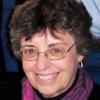Less than 24 hours after a group of Occupy San Francisco demonstrators took over a vacant building belonging to the Archdiocese of San Francisco, the city's police department entered and arrested about 75 people.
The Monday arrests came after an archdiocesan representative signed a citizen's arrest form for trespassing. The Occupiers had said they planned to use the building as their headquarters and to provide social services from the site.
The Occupiers entered the building Sunday after a peaceful march from San Francisco's Union Square in the heart of the city's downtown shopping district. They hung a large banner outside the building that read, "Give us this day our daily bread, and forgive us our trespasses."
When police entered the building to make the arrests, they found "extensive damage," said George Wesolek, archdiocesan spokesperson. "Graffiti was prominent. One example, 'F-- the police pigs!' "
Police said the group had a stockpile of bricks and cans of paint on the building's roof and there was fear the Occupiers might resort to violence.
Emma Gerould, one of the Occupiers, told the San Francisco Chronicle the group knew the building belonged to the archdiocese and wanted to put church officials on the spot.
"There is no reason why any building should be vacant when people have no housing," Gerould told Chronicle reporter Benny Evangelista. "We ask that the archdiocese do the right thing and allow these services in these buildings."
Wesolek told NCR that church officials did not meet with the Occupiers, "as that would give them a legitimacy they did not have."
He said the two-story building near St. Mary's Cathedral was purchased by the archdiocese five years ago and was used by nearby Sacred Heart Cathedral Preparatory school for music and art classes until about 18 months ago.
At that time, classes were moved to the school's new theater arts center adjacent to the cathedral and the building was put up for lease with the intent to use the revenue for tuition assistance for the school's students from lower-income families.
Wesolek said the archdiocese, through its parishes and institutions, provides about one-third of all the social services available to the poor and homeless in the city.



